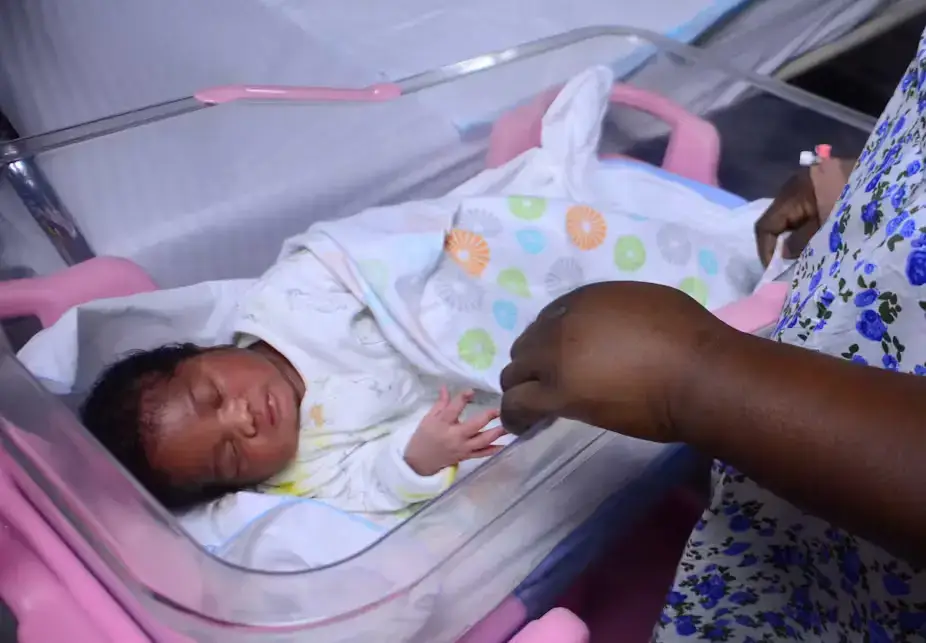
Health Crisis: Study Reveals Babies In Nigeria Are Born With Antibiotic-Resistant Bacteria

A recent study by Gavi, a vaccine alliance has revealed that Nigerian babies are born with antibiotic-resistant bacteria, specifically colistin-resistant strains.
The report which examined samples from mothers and newborns from three hospitals in Kano and Abuja between 2015 and 2017 stated that out of the 4,907 samples analysed, 1 per cent had genes conferring colistin resistance, affecting 41 mothers and eight babies.
Although this is a low percentage, the report said it is extremely worrying that babies younger than one week old already had colistin-resistant bacteria, even though neither the mothers nor the infants had been treated with colistin.
It surmised that mothers might have picked up these colistin-resistant bacteria from the environment, while the babies could have picked it from the hospital, the community, or their mothers.
“It’s not yet known if these colistin-resistant bacteria stay in the mothers or babies – but if they do this may increase their chances of acquiring future drug-resistant infections,” the report said.
It also stated that colistin is one of the last remaining effective antibiotics used to treat life-threatening infections like pneumonia. The presence of colistin-resistant bacteria in newborns is particularly concerning because it suggests that these babies could be at a higher risk of developing drug-resistant infections in the future.
Antimicrobial resistance
Antimicrobial resistance (AMR) occurs when bacteria, fungi and parasites have developed the ability to resist the action of antibiotics.
Antibiotics are drugs used to treat bacterial infections, including sepsis, a life-threatening condition in which one’s immune system has an extreme response to an infection, accounting for about 11 million deaths – 20 per cent of all deaths per year.
The World Health Organisation (WHO) has described AMR as one of the top global public health and development threats due to the overuse and misuse of antibiotics by humans.
According to Gavi’s report, Sub-Saharan Africa is one of the regions with the highest rates of deaths associated with antimicrobial resistance (including sepsis) in the world, with 23.5 deaths per 100,000 people.
Linking the use of colistin in agriculture and the emergence of resistance in humans, the report said, in 2016, mobile colistin genes were discovered in E. coli bacteria from a pig farm in China, leading to a total ban on colistin’s agricultural use in China. However, European countries continue to export livestock feeds containing colistin to low- and middle-income countries like Nigeria, perpetuating the cycle of resistance.
The report called for a global ban on the indiscriminate agricultural use of colistin to preserve its effectiveness in human emergencies. However, it noted that this must be balanced with alternative solutions to maintain food production and support farmers’ livelihoods.
Read More:
- Nigerians React To Bill Seeking Prison Terms For Protesters, Those Insulting Politicians, Others
- Nigeria Spends N1.4bn Annually on Senators – RMAFC
About The Author
Related Articles
Tinubu Government Delays Release of Signed Tax Acts to the Public
Four days after President Bola Tinubu announced the signing of four tax...
ByMayowa DurosinmiJune 30, 2025As Tinubu Urges Africa-Caribbean Unity in Saint Lucia, Over 272 Nigerians Killed in June Alone
While Nigerians deal with deadly violence, worsening hunger, and mass flooding, President...
ByWest Africa WeeklyJune 30, 2025You Can’t Tax a Dead Economy: Nigeria Is Suffocating Under Its Own Policies
As Nigeria’s Central Bank clings to its benchmark interest rate of 27.5...
ByWest Africa WeeklyJune 30, 2025“Wike is Not a Blessing to Us, He’s a Disaster” — Workers Protest in Nigeria’s Capital Over Unpaid Wages, Poor Working Conditions
Staff members of the Federal Capital Territory Administration (FCTA) in Abuja barricaded...
ByOluwasegun SanusiJune 30, 2025











